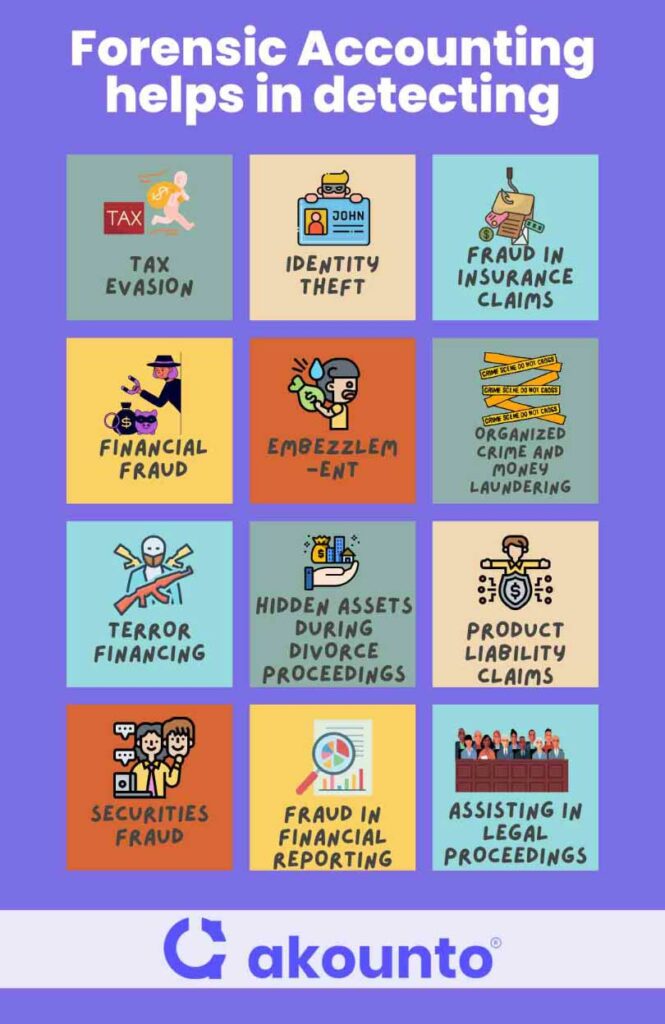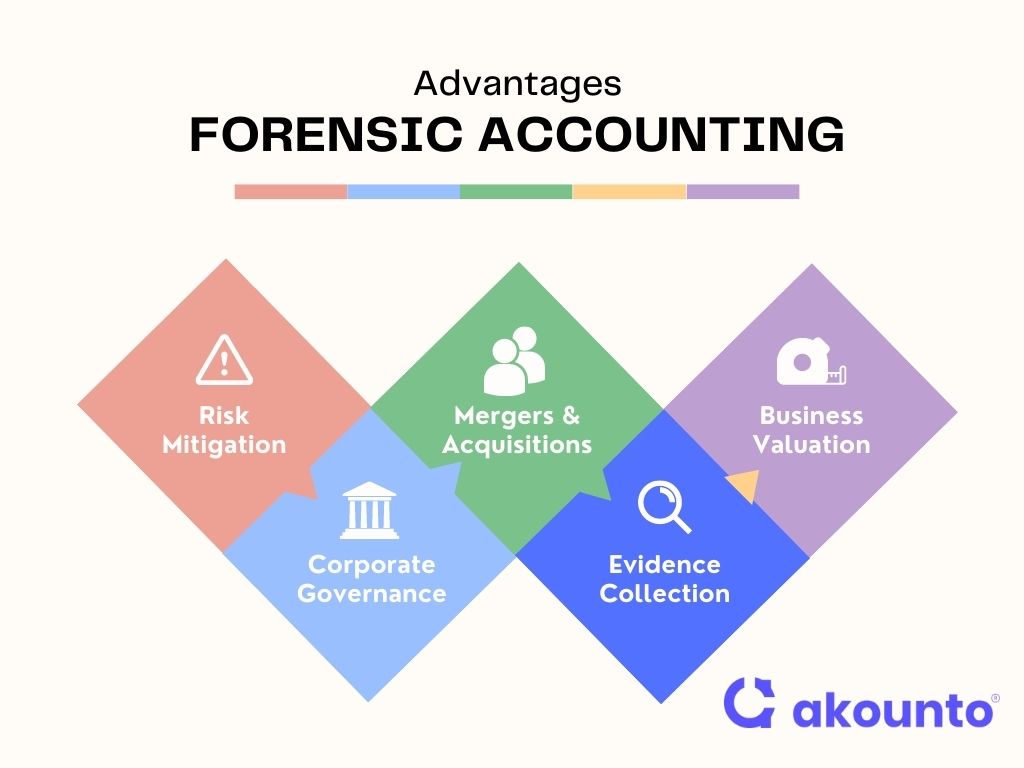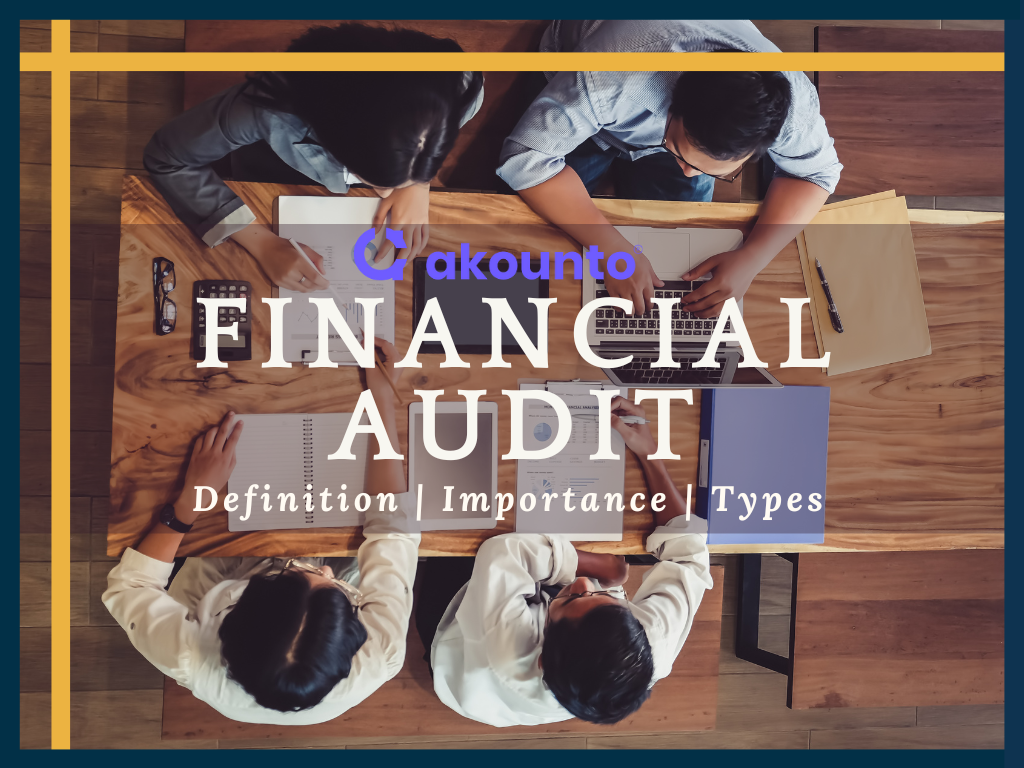What is Forensic Accounting?
Forensic accounting is the application of accounting, auditing, and investigative techniques to examine financial statements to detect fraud, asset misappropriation, financial crime, tax evasion, etc., and gather financial evidence.
Forensic accountants investigate and confirm if any financial crime has been committed and ascertain the extent and damages of the crime.
CPAs with a specialized skill set serve as forensic accountants.
They are considered expert witnesses and assist in administrative and legal proceedings to form opinions and verdicts in several court cases.
Forensic accounting or financial forensics helps in detecting financial frauds which can be done by an internal employee, senior management, company directors, or other key personnel within an organization. Forensic accounting uses the knowledge of accounts, investigation principles, audit procedures, law, and guidelines, using accounting software and ERP, microeconomics, corporate citizenship, internal controls, and reporting structure of the company or department under investigation.
A forensic accountant who is a trained CPA should be neutral and have no vested interests in the party under investigation. The prime function is firstly to establish if there is a financial crime or fraud. Then to detect the quantum or the amount of fraud. Finally to pinpoint the persons and procedures responsible for the fraud.
The scope of forensic accounting is not just limited to criminal investigation or finding material evidence for fraud. Forensic accounting is also used by insurance companies to establish the truth for settling claims.
Forensic accounting also helps underwriters, investment bankers, and investors spot the red flags before making any investment decision.
History
Forensic accounting came to the limelight with the conviction of the notorious gangster Al Capone. A certified public accountant Frank Wilson while working for US Internal Revenue Service, investigated the financial transactions of Al Capone during that time.
Due to Frank Wilson’s due diligence and analysis, Al Capone was indicted for federal income tax evasion in 1931. Though accountants have assisted in court cases as expert witnesses since 1817 (Meyer v Sefton), the Al Capone case brought forensic accounting to the fore.
“Forensic accounting” was coined by a New York CPA named Maurice Peloubet in 1946. The first book on the subject was published in 1982.
By 1960, almost 700 Special Agent Accountants were employed by the FBI to investigate financial crimes, tax evasion, organized crime, embezzlement, fraud investigation, accounting fraud, fraud schemes, and much more. To this day, it has evolved into the Financial Crimes Section.
After the infamous Enron Scandal (the early 2000s), forensic accounting services became more significant all over the US. The Sarbanes-Oxley of 2002, though, hasn’t explicitly mentioned ‘forensic accounting experts’ but recommended:
- Corporations to ensure compliance with the mandates of the act can take guidance from the forensics for the same, and
- Certified public accountants or public accounting firms may request assistance from forensic experts to ensure compliance with financial records.
Application Areas
The scope of forensic accounting and investigative techniques has been broadening with growing business complexities owing to globalization and technology.
From the investigation of frauds and crimes, forensic accountants now play a proactive role in fraud deterrence, consultants to internal audit committees, litigation support, settling insurance claims, exposing Ponzi schemes, disputes in divorce, and various other helpful activities related to court cases.
Forensic accountants are employed by larger accounting firms, government agencies, banks, law enforcement, the court of law, insurance companies, etc.
A forensic accountant is normally a certified public accountant – CPA. American Board of Forensic Accounting (established – in 1993) assesses the investigative skills of CPAs in its Certified Forensic Accountant program.
Similarly, the Association of International Certified Professional Accountants conducts a program that awards “Certified in Financial Forensics” credentials to forensic accountants.

A forensic accountant investigates and analyses financial data and assists in the resolution/evidence gathering or deterrence in the following scenarios:
- Tax evasion
- Identity theft
- Fraud in insurance claims
- Financial fraud
- Embezzlement
- Organized crime and money laundering
- Terror financing
- Hidden assets during divorce proceedings
- Product liability claims.
- Securities fraud
- Fraud in financial reporting
- Assisting in legal proceedings
Forensic accountants sometimes are employed by big corporations to conduct internal audits that help in fraud prevention at the earliest.
Methods
Forensic accounting and internal auditing should not be used interchangeably. Where internal audit aims to find and prevent errors and give a reasonable assurance of compliance, forensic accounting seeks to identify, establish and prove financial frauds, misconducts, appropriations, embezzlement, etc.
Forensic accountants appear on the scene when the crime has already been committed.
Since forensic accountants work closely with the court of law, thus their findings are to be backed by irrefutable and material evidence.
A forensic accountant works as an investigator and an explorer. He deploys scientific methods of inquiry, fraud discovery, evidence gathering, and criminal investigation. His methods can broadly be categorized into qualitative and quantitative methods.
- Qualitative Methods include examining the personal traits and characteristics of perpetrators of financial fraud. Forensic accountants focus on suspects’ motives, opportunities, rationalization, and behavioral factors. It helps narrow down the suspects as many common traits are found among the perpetrators.
- Quantitative Methods in forensic accounting focus on data collection and use data analytics to detect abnormalities, exceptions, patterns of misconduct, etc. In financial forensics, predictive modeling, Benford’s law, data mining, etc., are employed to gather factual evidence that can stand the scrutiny of the law.
Benefits

Forensic accounting as a specialized field has witnessed tremendous demand for its services. With increasing financial complexities, the scale of business transactions, penetration of the internet, and globalization, the threat of fraud and crimes has also witnessed a manifold increase.
Forensic accounting is increasingly more relevant as the commercial landscape has been expanding ever since. The following are the benefits of forensic accounting:
- Risk Mitigation:В Forensic accounting is helpful in the early detection of fraud by analyzing patterns and data analysis. Early detection of anomalies helps prevent frauds that can save the company from future litigations, penalties, and loss of goodwill.
- Better Corporate Governance:В Forensic accounting contributes to establishing the basic tenets of corporate governance, which include responsibility, fairness, transparency, and accountability.
- Mergers and Acquisitions: Forensic accounting assists investment bankers and valuation experts in their due diligence process. It forms the irrefutable basis for valuing the company and ensuring the fairness of the merger or acquisition.
- Scientific Evidence Collection: As the process of evidence gathering is objective and scientific, all the involved parties are ensured of their unbiased nature. The reliability of the findings makes it an important basis for litigation support.
- Business Valuation and Brand Building: Forensic accounting goes beyond compliance to ensure fairness, responsibility, and accountability. Organizations that withstand the forensic accounting processes are perceived to be more transparent and responsible, adding to their valuation and brand.
Limitations
- Time-consuming:В The organization’s accounting systems are investigated and subjected to numerous tests. The accounting data is verified, and all the parties involved with the transactions under scrutiny are probed. This data processing and evidence gathering is a time taking process.
- Expensive: Forensic accounting is time-consuming and escalates the cost of conducting forensic audits. The fee for forensic accountants is higher than normal auditors. In case of any underlying legal suit, the company’s operations may be halted until the forensic accounting data gathering is complete.
- Specialized Domain:В Forensic accounting as a subject came to the fore in the post-modern world. As a new domain with specific knowledge that combines auditing, accounting, and investigating ability, there are far fewer forensic accountants than other professionals in the finance domain.
Forensic accounting ensures that the principles of corporate citizenship are upheld.
Akounto contributes to corporate citizenship by helping maintain accurate books of accounts. Expert support helps in responsible decision-making and safeguarding the stakeholders’ interests.
Sign in to Akounto and get in touch with our experts to get all of your questions answered today.




